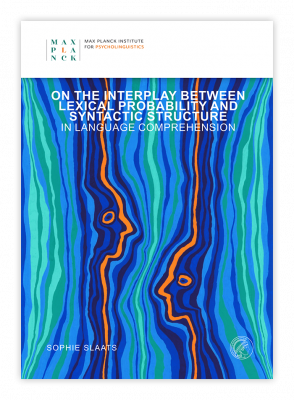Sophie Slaats defends thesis 16 September

To understand language, we use all kinds of knowledge. These include knowledge of how likely words are in context (statistical word knowledge) and knowledge of the structure of sentences (syntax). This PhD thesis uses different methods to investigate whether these two types of knowledge interact with each other in the process of language comprehension.
First, the PhD thesis examines whether statistical word knowledge alone can serve as a model of human language. We probably do need syntactic rules: after all, people read unlikely words slower than likely ones, but they read even more slowly when the words are grammatically incorrect.
But are these types of knowledge then connected? One study shows that our brain responds differently to words in sentences than to words in lists with no sentence structure: our brain seems to respond faster to words in sentences, than to words in word lists. Another study shows that our brain also 'builds' that syntactic structure differently depending on the words themselves: the sentence structure is built faster when the word is statistically predictable than when the word is statistically unpredictable. All this suggests that our knowledge of language structure and the probability of words interact with each other in the process of language comprehension.
Share this page